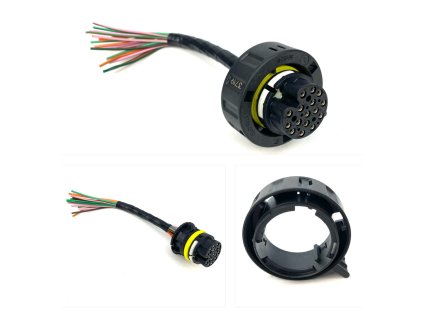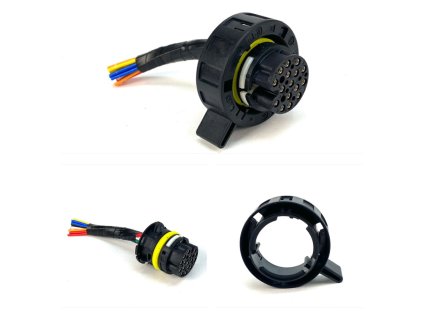4H0121671D Magnetic valve 1.8 / 2.0 TSI / 3.0 TDI
Code: 64886/EVRRelated products
Product detailed description
4H0121671D Magnetic valve
1.8 TSI 132kW
2.0 TSI 132kW / 140kW / 162kW / 169kW / 180kW / 200kW / 206kW
Replacement for:
4H0121671B
VW / AUDI / SKODA / SEAT
P13A0 00 (047) Short circuit on plus
10333 - Thermostat for Transmission P19A2 00 [040] - Open Circuit
10335 - Thermostat for Transmission P19A0 00 [104] - Short to Plus
10336 - Thermostat for Transmission P19A1 00 [032] - Short to GND
Be the first who will post an article to this item!
The term "Original Equipment Manufacturer" (OEM) is very common in the world of auto parts, but it can remain a mystery to many people. If you've ever been looking for replacement parts for your vehicle and seen the acronym "OEM", you've probably wondered what exactly this acronym stands for and what the meaning of this designation is. Here's a look at what OEM actually means and why it's important when buying auto parts.
What does OEM mean?
OEM is an abbreviation for "Original Equipment Manufacturer". In the auto parts industry, this term is used to refer to parts that are made by the same manufacturer as the parts used in the production of new vehicles. This means that the auto parts labeled as OEM are manufactured by the same manufacturer that supplies the parts to the car industry.
Why is OEM important?
When deciding which parts to buy to repair your vehicle, it can be tempting to go for cheaper, non-OEM replacement parts. However, choosing OEM parts has several advantages:
- Quality: OEM parts are designed and manufactured by the same manufacturer as the parts used in new vehicle production. This means they are identical and have the same quality and specifications as the original parts that were originally installed on your vehicle.
- Compatibility: Using OEM parts ensures that the new part is perfectly compatible with your vehicle. This means fewer installation problems and better performance.
- Warranty: Some OEM parts manufacturers offer a warranty on their products, which can be a great advantage for the customer. If something goes wrong, you can be sure that the manufacturer will provide you with a replacement.
- Confidence: Using OEM parts can give the customer confidence that the repair was done the right way with quality parts.
Conclusion
OEM (Original Equipment Manufacturer) is a term used in the auto parts industry to refer to parts manufactured by the same manufacturer as the parts used in the production of new vehicles. There are many benefits to using OEM parts, including ensuring quality, compatibility, warranty and confidence. So if you are thinking of buying auto parts for your vehicle, it might be a good decision to go for OEM parts.
.png)

